- Home›
- Healthy Living›
- 5 Reasons Why Olives Make You Gain Weight
5 Reasons Why Olives Make You Gain Weight
By: Priyanka Maheshwari Sat, 24 Sept 2022 11:15:55
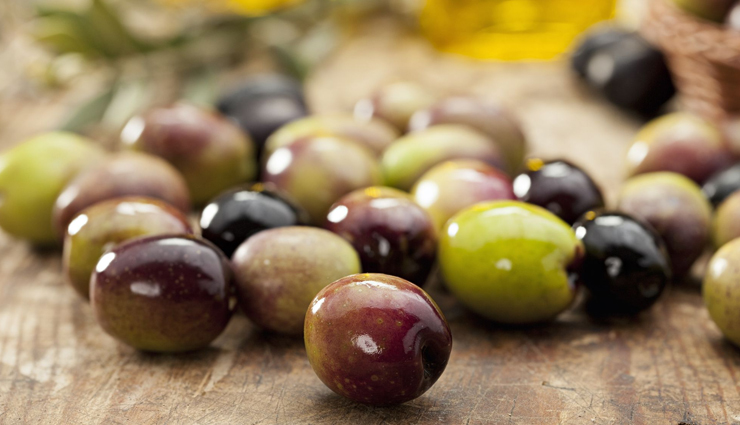
Olives are a flavorsome addition to mealtimes or a handy snack for when you are peckish. But if you are watching your weight, could this yummy indulgence tip the weighing scales in the wrong direction? Here’s all the information you need if you are worried about how fattening olives are!
But before we get started, a word on how olives are prepped before they come to you. As you will see later, this also has an impact on how your body processes this more-ish treat. Olives can’t be eaten plucked straight from the tree as they can be very bitter and need to be cured first to be made palatable. This is done by soaking and packing them in brine, vinegar, and olive oil, or by leaving them to ferment in salt water. If they’re plucked and cured raw, you get the green olive we’re all so familiar with. When plucked ripe and cured, the olive turns black, giving you the other familiar form of the olive. Besides these, marinated Kalamata olives feature on menus of Greek or Mediterranean restaurants and in homes of those from these regions.

# Olives Are Mostly Water And Are Low On Calories
If you compare olives to other convenient snacks like a bag of potato chips or crackers, it comes as no surprise that olives are a healthier and lighter choice both on the calorie front and in terms of their carb and fat content. This becomes even more apparent when you consider that these snack foods or fast foods might even have trans fats, the worst kind of fat and one best avoided.
Here’s how they stack up on calories:
- A serving of 10 ripe or black olives has about 50 calories. About 35 gm of the total weight of this serving size of 44 gm is just water! It even contains about 1 gm of heart-healthy dietary fiber.
- A serving of 10 green olives, on the other hand, has 20 gm of water in this serving size of 27 gm and amounts to only about 40 calories. It has 1 gm of dietary fiber as well.
- A serving of 10 Kalamata olives will give you 90 calories per 30 gm serving.
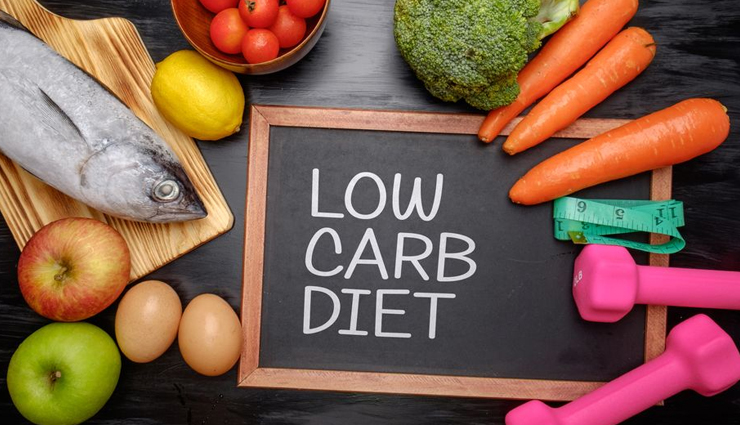
# They Are A Low-Carb, Low-Glycemic Index Food
Far from making you fat, olives may actually help with weight loss, especially if you are on a low-carbohydrate or low-glycemic index (GI) food diet. Low-carb diets typically include fewer carbs and more filling foods like proteins so you’ll feel less hungry. The reduction in refined carbs translates to your sugar levels staying steadier, not rising and falling suddenly. This, in turn, should also aid weight loss.
Black olives have 2.7 gm of carbohydrates and green olives have about 1 gm of carbohydrates per 10 fruit. Kalamata olives, on the other hand, contain just 4 gm of carbs. Compare that, for instance, to a single small baked potato which has 29.19 gm of carbs. Or even a relatively lighter option like a cup of sliced apples with the skin on, which still racks up 15.05 gm of carbs.
It also helps that olives have a low GI. Foods with a high GI release energy quickly but leave you feeling hungry pretty fast as well. As a result, you may end up snacking more between meals if you rely on such foods to fill up. Olives have a modest GI of just 15, similar to spinach and celery, making them very low GI foods. In addition to their low GI, the fiber in olives could also help with satiety and keep you feeling full for longer. And intake of fewer calories means a better chance of achieving that calorie deficit between what your body burns versus what you consume, helping with weight loss rather than fattening you.
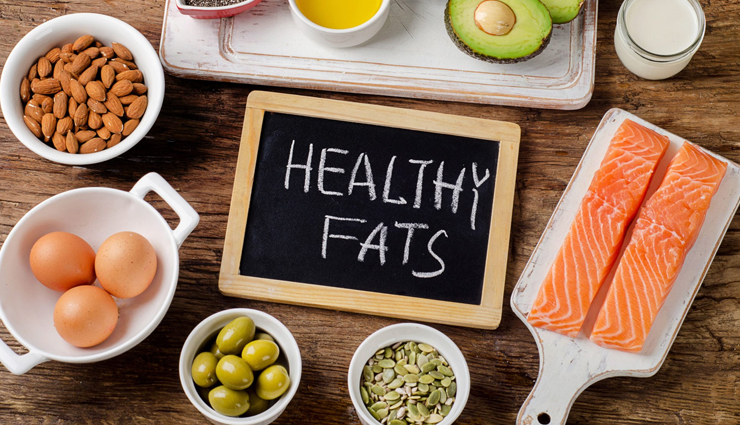
# They Have Healthy Fats That Help You Manage Weight Better
So, contrary to the common misconception, olives aren’t fattening! And while they do contain some amount of fat, these fats are “good” fats. For instance, monounsaturated fat, the most predominant fat in olives, is not unlike those found in avocados and nuts.
Here’s how olives add up in fat content:
- Black olives contain a total of 4.8 gm of fat in 10 fruits. 3.1 gm of this is monounsaturated fat.
- A similar portion of green olives has around 4.1 gm of fat.
- Kalamata olives have around 8 gm of fat per 10 olives.
While this isn’t lower than another fresh fruit or vegetable, if you were to snack on cheese and crackers instead, you’d get 9.44 gm of fat from the 1 oz of cheese alone.
Research has already shown that olive oil intake is linked to a reduction in levels of the low-density lipoprotein cholesterol. Since the nutrients responsible for this effect are present in olives too, consuming olives may have similar effects though this is still to be established through research.
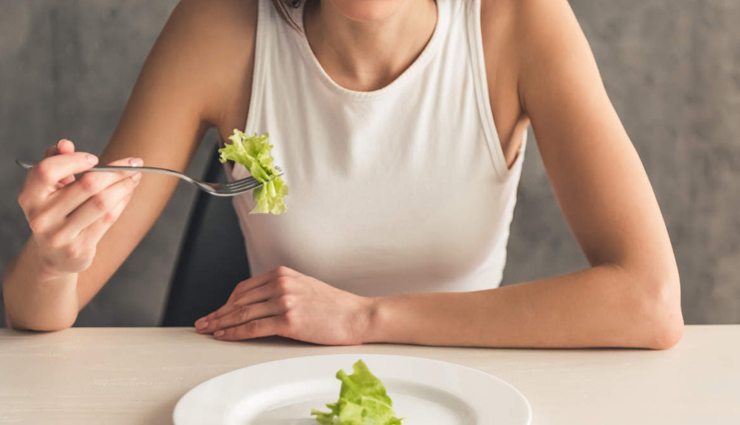
# They May Also Help Suppress Appetite
Adiponectin, a hormone that boosts metabolism and improves your body’s use of carbs, also curbs your appetite. Unfortunately, if you are obese, the production of this hormone tends to be suppressed, adding to your weight gain issues. Research on olive oil shows that the antioxidants monounsaturated fatty acid oleic acid found in it could counter the downregulation of adiponectin. Olives also contain these fats and antioxidants and might help with appetite suppression by stimulating the production of adiponectin.
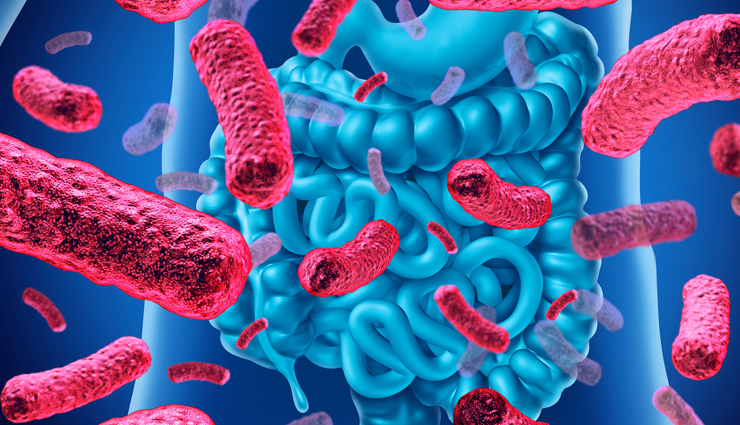
# They May Have A Probiotic Effect
Researchers are also studying fermented green olives to see if they could be a probiotic food thanks to the process of fermentation they undergo. Typically, lactic acid bacteria are involved in the fermentation of treated olives. These bacteria are already known for their probiotic effects, which is why the scientific community is investigating the possibility that fermented olives, like yogurt, kimchi, and other fermented foods, could be good for your digestive health and gut flora. What’s more, obesity seems to alter gut flora. Having healthy gut bacteria, in turn, could help your effort with weight loss, though this is still being explored by researchers.





